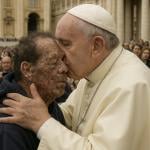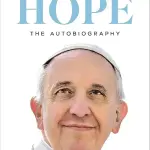This post is my fourth and final set of ruminations on Pacem in Terris, the last encyclical of Pope John XXIII. The previous posts can be found here: Part I, Part II, Part III.
In our final discussion we read paragraphs 130-172, which consisted of two sections. In the first section (par. 130-145) the encyclical considers the relationship between individuals and states and the “world community”, which it treats as an organizational level in human society that is above the level of the state. The argument is that under the natural law, the principle of human solidarity requires the existence of world-wide governmental structures. First it argues that nation-states themselves, while necessary, are not sufficient:
From this it is clear that no State can fittingly pursue its own interests in isolation from the rest, nor, under such circumstances, can it develop itself as it should. The prosperity and progress of any State is in part consequence, and in part cause, of the prosperity and progress of all other States. (par. 131)
Or again,
We are thus driven to the conclusion that the shape and structure of political life in the modern world, and the influence exercised by public authority in all the nations of the world are unequal to the task of promoting the common good of all peoples. (par. 135)
The conclusion, therefore, is that there must be a governmental body whose task is precisely the global common good:
Today the universal common good presents us with problems which are world- wide in their dimensions; problems, therefore, which cannot be solved except by a public authority with power, organization and means co-extensive with these problems, and with a world-wide sphere of activity. (par. 137)
This is a striking development to the argument. The previous section about nation-states, while urging upon states a very different way of interacting with one another (one, as we discussed previously modeled on the rights and duties of individuals and which recognized the inherent dignity of each state), was still very much in conformity with existing organization of the world into competing states. Realpolitik might call for states to negotiate with one another, but each was a power unto itself and they were jealous of their sovereignty. John XXIII, however, is setting up a new layer above the states–a world-state, if you will–and states must see themselves as subsidiary bodies and not at the pinnacle of social organization.
I think that this is a very important point. There is a tendency to regard foreigners, outsiders, as different and in some ways lesser than fellow citizens, so that the only legitimate concerns are those of citizens. This is most clear in the xenophobia and racism that has come to the fore in the rhetoric against immigrants. It reached its nadir in the shooting last year in El Paso and the hate-filled screed of the shooter. The encyclical, however, is calling us to a very different stance: while each nation has valid local concerns, equal weight must be given to global concerns and the rights of individuals transcend national boundaries. This comes through most clearly in earlier passages about refugees and immigrants, which are worth quoting in full:
it is not irrelevant to draw the attention of the world to the fact that these refugees are persons and all their rights as persons must be recognized. Refugees cannot lose these rights simply because they are deprived of citizenship of their own States.
And among man’s personal rights we must include his right to enter a country in which he hopes to be able to provide more fittingly for himself and his dependents. It is therefore the duty of State officials to accept such immigrants and—so far as the good of their own community, rightly understood, permits—to further the aims of those who may wish to become members of a new society. (par. 105-106)
The clause “so far as the good of their own community” might seem to be a general escape clause, giving nations carte blanche to prioritize their own good over that of outsiders, but the caveat “rightly understood” suggests otherwise. Subsidiarity must be balanced against solidarity, and the global common good must be considered when dealing with refugees or any other problem which spans nations.
The world-state, like nation states, exists only for the common good, and is bound by the same strictures that shape the actions of nations. In particular, the world-state cannot be established by force, and it should not use force to impose its will.
But this general authority equipped with world-wide power and adequate means for achieving the universal common good cannot be imposed by force. It must be set up with the consent of all nations. If its work is to be effective, it must operate with fairness, absolute impartiality, and with dedication to the common good of all peoples. (par. 138)
This would seem to limit the power of the world-state, and it faces the same problems that nation-states do: how is it to confront evil in the world, and help police itself and the other nations from bad actors? These problems are not addressed.
The encyclical then turns to the then relatively new world-state organization, the United Nations. Paragraphs 142-145 are filled with praise for the UN and its activities. Our discussion took an interesting turn at this point. We initially began raising some concerns about the UN, particularly the way in which it has begun interpreting human rights in ways that are contrary to Catholic social teaching. (See, for instance, the UN’s stance on abortion.) However, our discussion soon turned to an enumeration of the many outstanding accomplishments of the UN. These included:
- The International Court of Justice, which as proved a fairly effective venue for states to adjudicate their differences.
- The World Food Programme and the UN High Commissioner for Refugees, and the work they have done combating hunger and aiding displaced persons.
- The UN’s role in ending the Iran-Iraq war, fulfilling its goal of being a peace-making body.
- The work of the United Nations to help implement the decolonization of Africa and other regions of the world.
- The World Health Organization and its work on public health, which led to the eradication of smallpox and the near eradication of polio, two of the great medical triumphs of the last 50 years.
All of these stand as a testament to the power of John XXIII’s vision for solidarity at a supra-national level. In addition, in our discussion we mentioned other organizations that transcend the nation states. I have talked several times about the European Union, recently founded at the time the encyclical was being written. Another member of the group mentioned the Organization of American States (OAS), founded in 1948. It has played a role in peacemaking among states in Latin America, and provides election monitoring to help insure peaceful transitions of power.
The question came up as to why international bodies, particularly the UN, have not fully lived up to the hopes placed in them. One suggestion from our group is that some kinds of international cooperation are more self-evidently good than others. Thus, while people can readily agree that the eradication of smallpox deserves international cooperation, other issues do not generate the same feeling or desire to cooperate. I think there is some truth to this, though failure of the campaign against polio (which foundered on religious extremism and conspiracy theories about the West) and the breakdown in cooperation on the covid-19 pandemic, suggest that the issue is more complicated.
At this point our discussion turned to the final section of the encyclical, paragraphs 146-172, which is a pastoral exhortation. Unlike the previous sections, which are oriented to analysis and are at times somewhat mixed in their town, alternating between pessimism and optimism, the final section is much more optimistic. It is also very much a call to action; in this it resembles the concluding sections of Quadragesimo Anno. It is a call for Catholics to become actively involved in the social and political questions of the day, and urges them to live out their Catholic faith in the public sphere:
We exhort Our sons to take an active part in public life, and to work together for the benefit of the whole human race, as well as for their own political communities. It is vitally necessary for them to endeavor, in the light of Christian faith, and with love as their guide, to ensure that every institution, whether economic, social, cultural or political, be such as not to obstruct but rather to facilitate man’s self betterment, both in the natural and in the supernatural order. (par. 146)
It is interesting to compare this call for engagement, with eyes wide open to the faults of the age, with the withdrawal and separatism urged by Rod Dreher in his book The Benedict Option.
While not called for the Church to become involved in politics (and definitely not calling for the sort of clerical fascism that Pius XI seemed to flirt with in his early relationship with the Italian fascists) it does call for government to be motivated by values, and it wants Catholics to make those values Catholic ones. John XXIII seems to be challenging the idea of a managerial, technocratic government which was a very popular notion in 1950s both in liberal circles and in Franco’s Spain, and is still a common approach in European parliamentary democracies when no party can claim a majority or to respond to an economic crisis. Leadership needs to be more than just competent in managing affairs. It needs a vision.
The encyclical also explicitly urges Catholics to cooperate with non-Catholics and non-Christians. The ecumenical spirit that was manifesting itself in the Second Vatican Council appears here in a very concrete way: putting the principles outlined in the encyclical
frequently involves extensive co-operation between Catholics and those Christians who are separated from this Apostolic See. It even involves the cooperation of Catholics with men who may not be Christians but who nevertheless are reasonable men, and men of natural moral integrity. (par. 157)
This is not relativism, but rather the belief that since the rights and dignity of human beings is grounded in the natural law, all people of good will are capable of recognizing them and cooperating towards these ends. A special instance of this is something that Millard Fuller, the founder of Habitat for Humanity, called the Theology of the Hammer:
This theology is also about bringing together a wide diversity of people, churches, and other organizations to build houses and establish viable and dynamic communities. It is acknowledging that differences of opinion exist on numerous subjects – political, philosophical, and theological – but that we can find common ground in using a hammer as an instrument to manifest God’s love.
Following on this, Pope John XXIII draws a careful distinction between error (as in false ideas) and those who hold these erroneous ideas, extending this even to proponents of philosophical systems the Church as condemned. (Though unnamed, this surely includes socialism, repeatedly condemned in Catholic social teaching, and the communist regimes of the Soviet Union and Eastern bloc.)
It is always perfectly justifiable to distinguish between error as such and the person who falls into error—even in the case of men who err regarding the truth or are led astray as a result of their inadequate knowledge, in matters either of religion or of the highest ethical standards. A man who has fallen into error does not cease to be a man….Again it is perfectly legitimate to make a clear distinction between a false philosophy of the nature, origin and purpose of men and the world, and economic, social, cultural, and political undertakings, even when such undertakings draw their origin and inspiration from that philosophy. (par. 158-159)
Here we see the rejection of the traditional idea that “error has no rights” and a profound openness to the world, including a recognition that the world outside the Church contains much that is good (as well as much that is marred by sin and error). Pope John XXIII, however, is very careful to make sure that the Church continues to be seen as an arbiter of truth, both in the abstract and in particular situations:
As far as Catholics are concerned, the decision [on what constitutes a prudent course of action] rests primarily with those who take a leading part in the life of the community, and in these specific fields. They must, however, act in accordance with the principles of the natural law, and observe the Church’s social teaching and the directives of ecclesiastical authority. For it must not be forgotten that the Church has the right and duty not only to safeguard her teaching on faith and morals, but also to exercise her authority over her sons by intervening in their external affairs whenever a judgment has to be made concerning the practical application of this teaching. (par. 160)
While leaving these matters primarily up to the lay faithful who are experts in the matters at hand, John XXIII sees the Church as a kind of moral backstop, intervening when it believes that Church teaching is being ignored or misapplied. This is rather powerful language, and it seems to hearken back to the kinds of declarations on the authority of the Church that Leo XIII made in Rerum Novarum. An interesting question, well outside the scope of this blog post (or even the encyclical), is how the Church should go about exercising this authority.
A key take-away from this section is that it is incumbent on all the lay faithful, indeed, on all men and women of good will, to bring about the kinds of social structures–at every level, from family to town to the nation to the world community–that uphold the rights and duties of each person:
Every day provides a more important, a more fitting enterprise to which they must turn their hands—industry, trade unions, professional organizations, insurance, cultural institutions, the law, politics, medical and recreational facilities, and other such activities. (par. 156)
As one member of our group summarized it, each of us is called to put on the robe of peace, the baptismal garment we received from Christ, and bring this peace into every part of the world.
Let us, then, pray with all fervor for this peace which our divine Redeemer came to bring us. May He banish from the souls of men whatever might endanger peace. May He transform all men into witnesses of truth, justice and brotherly love. May He illumine with His light the minds of rulers, so that, besides caring for the proper material welfare of their peoples, they may also guarantee them the fairest gift of peace. (par. 171)
This is a worthy call, though a hard one, given the temptations of power and the ways in which unjust social institutions shape our ends away from the good. (See my recent post on structural racism for an example of this.)
Finally, I want to mention one small passage in the encyclical that somewhat bothered me. In paragraph 162, the encyclical talks about the need for gradualism in bringing about lasting change:
We would remind such people that it is the law of nature that all things must be of gradual growth. If there is to be any improvement in human institutions, the work must be done slowly and deliberately from within….Hotheadedness was never constructive; it has always destroyed everything. It has inflamed passions, but never assuaged them. It sows no seeds but those of hatred and destruction. (par. 162)
In Part II I noted some congruences between the encyclical and Martin Luther King’s Letter from a Birmingham Jail. Here, however, we need to note a significant difference, as this letter was a strong critique of the white ministers who were accusing King of hotheadedness (or at least precipitous action) and urging King to show restraint and allow things to evolve gradually. King rejected this argument for gradualism, saying that it was often used as gentler way of denying change and reform:
We know through painful experience that freedom is never voluntarily given by the oppressor; it must be demanded by the oppressed. Frankly, I have yet to engage in a direct action campaign that was “well timed” in the view of those who have not suffered unduly from the disease of segregation. For years now I have heard the word “Wait!” It rings in the ear of every Negro with piercing familiarity. This “Wait” has almost always meant “Never.” We must come to see, with one of our distinguished jurists, that “justice too long delayed is justice denied.”
It is unclear if these two passages can be reconciled and it will be interesting to see if Catholic social teaching evolves in subsequent documents to a more understanding view of the need for more rapid change, even at the risk of causing great discomfort to those in positions of privilege and power.

















